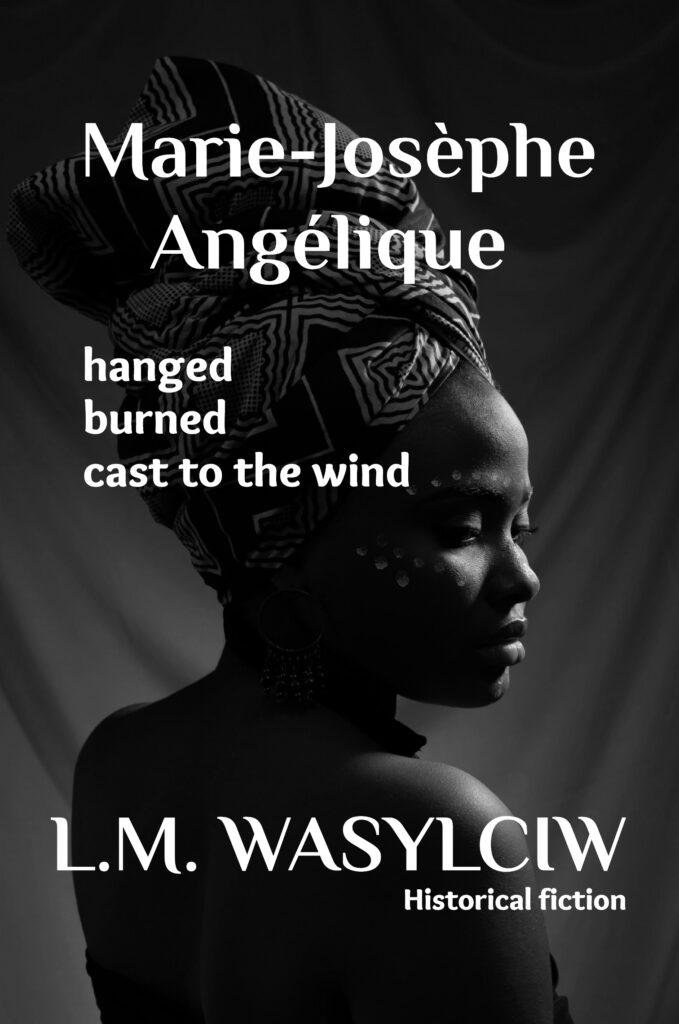
NOW PUBLISHED
Historical fiction – French Canadian drama
Slavery
Transatlantic slave trade
history notations and chronological
torture and death
French-Canadian judicial system 1734
AUTHOR’S NOTE: Why I wrote ‘Marie-Josèphe Angélique– Hanged, burned, cast to the wind’- In Colonial times slaves were torn from their family and homeland. It was a life of bondage, cruelty, and hard work. Freedom was not available at any level, nor did they have a voice – least of all in a court of law.
Marie-Josèphe Angélique
Hanged, burned, cast to the wind
Marie-Josèphe was born, in 1705, on the island of Madeira, Portugal, as an indentured slave. At the age of 15 her biggest nightmare was realized; she was sold and became a victim of the triangular trans-Atlantic slave trade. Sold from slave owner to slave owner, she did her best to comply with the rules white supremists had laid out. It was not uncommon to see Marie-Josèphe’s fiery temper, stubbornness and headstrong personality and, all too often, she spoke out against her masters. The young girl resented her bondage and was labelled as rebellious.
When Marie-Josèphe was certain things could not get worse, Madame changed her name to Angélique. Her strongest desire was to gain her freedom and return to her beloved Madeira but the crime against runaway slaves was severe, “The runaway slave…shall have his ears cut off, and shall be branded with the fleur de lis on the shoulder…. On the third offence, he shall suffer death.”
During the night of April 10, 1734, a blaze consumed forty-six buildings, in Montréal. The people of la Nouvelle-France needed a scapegoat – someone had to be held responsible for the tragic loss that occurred within the new colony. All eyes turned towards the rebellious black slave who felt slavery was wrong?
